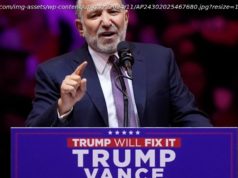Both stock-trading apps and the Fed are overheating markets with heavily discounted stuff — whether it’s free stock trading on a cellphone or historically low mortgage rates.
Confused by all the wild, speculative trading of GameStop shares that made the ailing video-game store chain the talk of the financial world? It’s not just you. This is a story in which hard-to-explain, Wall Street investment strategies were pumped up by novel cellphone apps and online chat rooms. Basically, small investors took on deep-pocketed hedge funds in a David vs. Goliath battle. It remains foggy who’s who and who really won or lost while huge gyrations in GameStop shares created and destroyed wealth in a matter of days. So for all my real estate friends, I decided to put the GameStop saga into a language that might feel more comfortable — the tale of key forces behind homebuying in the pandemic era. Consider this a sort of a GameStop “PlayBill” for homeowners, house hunters, renters and their flock of helpers. Ponder the contribution of financial apps like the much-hyped Robinhood in the GameStop saga and the widely watched Federal Reserve’s role in housing. This is clearly new school vs. old school casting, yet their parts are somewhat similar. Both stock-trading apps and the nation’s stodgy central bank are overheating markets by giving away heavily discounted stuff — whether it’s free stock trading on a cellphone or historically low mortgage rates. Are these sustainable business models? “Wealth for the masses” is a noble mantra. Just pick your poison. GameStop’s supporters claim they want stock investing to be a fair fight so the small fry can get an equal shot at riches seemingly reserved for Wall Street’s chosen few. Betting against companies — the “shorts” in Wall Street lingo — is wrong in their eyes. Meanwhile, homeownership advocates suggest buying a residence is a great road to riches for the American family and that more “affordable” housing should be built. It’s different this time. Or so we’re told about the underlying economics. GameStop isn’t Blockbuster.






